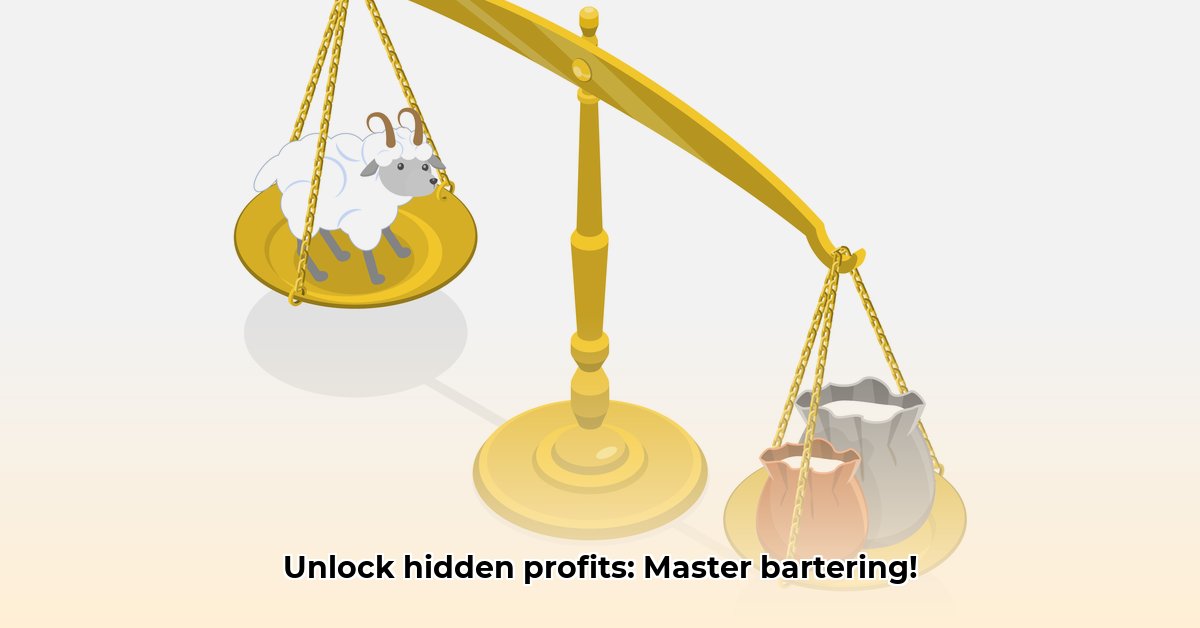
Understanding the Modern Barter Economy: A South African Perspective
Bartering – swapping goods and services – isn't just a relic of the past; it's experiencing a resurgence, especially in tough economic times. This instructional guide will help you navigate the modern barter system, boosting your business or personal finances. Are you ready to unlock the potential of this age-old practice?
It's more than just swapping chickens for eggs these days. Modern bartering leverages online platforms to connect individuals and businesses with complementary needs, making the process surprisingly smooth. While challenges like fair value assessment and tax compliance exist (more on that later!), the potential benefits are significant.
Why Choose a Barter Deal? The Advantages Explained
Access Resources Without Cash: Need website design but strapped for cash? A barter deal allows you to exchange your services for the design, accessing resources without immediate financial outlay.
Expand Your Network: Bartering introduces you to businesses and clients you might not otherwise meet—think of it as super-charged networking! Broaden your horizons and access resources beyond typical networking events.
Boost Your Bottom Line (Indirectly): By bartering for necessities, you free up cash flow that can be reinvested in crucial areas like marketing or equipment upgrades. Don't forget to save some of your freed-up finances for the well-deserved holiday!
Mastering the Barter Deal: A Step-by-Step Guide
Successfully navigating the world of bartering involves a structured approach:
1. Know Your Worth: Identify your skills or products of value. Think broadly! Web design, catering, plumbing, accounting, even dog walking – all have potential. What are your valuable skills?
2. Find Your Trading Partner: Online platforms simplify finding potential partners with complementary needs. These platforms act as marketplaces, facilitating connections.
3. Negotiate Like a Pro: Determine the fair market value (FMV) of what you offer and receive. This is crucial, particularly for tax purposes. Agree on a mutually beneficial exchange. Remember, it's a partnership, not a battle! How can you find the most appropriate barter partners?
4. Document Everything: Keep detailed records of every transaction – dates, descriptions, agreed-upon FMVs. A simple spreadsheet or software can help. Why is record-keeping so important?
5. Professional Execution: Deliver on your promises efficiently and professionally. Clear communication maintains trust and smooths future dealings. What steps should you take for clear communication?
Navigating the Risks: A Simple Risk Assessment Matrix
Like any transaction, bartering carries risks. This matrix outlines mitigation strategies:
| Risk Category | Mitigation Strategy |
|---|---|
| Fraud/Scams | Thoroughly vet potential partners; use secure online platforms; consider escrow services. |
| Valuation Disputes | Clear written agreements; establish FMV upfront using industry standards or pricing guides. |
| Legal/Tax Issues | Maintain accurate records; seek professional tax advice; understand relevant South African tax laws. |
Barter Deal Examples: Practical Illustrations
Graphic Designer/Web Hosting: A graphic designer trades designs for website hosting. The designer secures a professional online presence; the hosting company gets professional designs.
Restaurant Owner/Marketer: A restaurant owner exchanges meals for marketing services. The restaurant gains customers; the marketer enjoys delicious food.
Plumber/Accountant: A plumber trades repairs for accounting services. Both save money and receive essential services.
The Future of Barter Deals in South Africa
With economic uncertainty, bartering's importance might grow. Technology is making it easier than ever to connect with potential trading partners. The key is to understand the mechanics, manage risks, and leverage bartering's power. Are you ready to explore the possibilities? Many businesses are already benefiting.
Legally Reporting Bartered Income for Tax Purposes
Bartering has tax implications in South Africa. The South African Revenue Service (SARS) considers the fair market value (FMV) of goods or services received as taxable income – just like cash. Accurate record-keeping is essential for compliance. Failure to comply leads to penalties and back taxes.
Understanding Barter Transactions and SARS
Simply put: The value you receive in a barter transaction is considered income by SARS. Whether you're a small business owner or an individual, you need to declare the equivalent monetary value. Accurately determining the FMV of the goods or services is vital. Informal swaps between friends are generally exempt; however, regular bartering within a business context must be declared. This means understanding how to legally report your barter income for tax purposes.
How to Report Bartered Income: A Step-by-Step Guide
Determine the FMV: Honestly estimate each exchanged item or service's open-market value. Seek professional advice if needed.
Keep Detailed Records: Maintain meticulous records of every transaction (dates, descriptions, calculated FMVs). This documentation is your legal protection.
Choose the Appropriate Tax Form: Use the relevant tax form based on your status (individual or business). Refer to the SARS website for guidance.
Accurate Declaration: Report your bartered income truthfully on your tax return.
Navigating the Nuances of Barter Transactions
Determining FMV can be difficult, especially for unique items or specialised services. Professional advice might be worthwhile, particularly for complex scenarios involving multiple transactions. Don't forget possible provincial and municipal tax implications based on the nature of the goods and services.
Penalties for Non-Compliance
SARS takes tax evasion seriously. Neglecting to report bartered income can result in penalties, interest charges, and even legal action. Proactive planning and open communication with SARS are highly recommended.
SARS Website on Tax Obligations